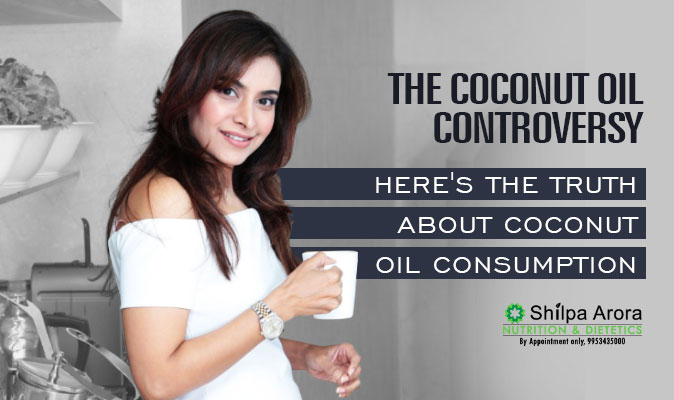The Coconut Oil Controversy: Here-The Truth About Coconut Oil Consumption
Published on 03-10-2019

The biggest tragedy of our times concerning health and diet is the mistaken belief that
coconut oil is a poison that causes heart diseases. In fact, coconut oil - a highly
saturated fat - is not vulnerable to oxidization and thus safest to use in cooking.
Scientists have known about the medium chain fatty acids present in coconut oil since
1950 and it has often been used in hospitals to treat Alzheimer, Cystic Fibrosis, Epilepsy
and to improve protein, fat and mineral absorption. It is well known that coconut oil is a
saturated fat- all the criticism we hear recently assumes that this will cause an increase
in the blood Cholesterol levels without any legitimate research.
However, the Framingham Heart Study is the most influential and respected
investigation on the causes of heart diseases. The researchers could not prove any link
between dietary cholesterol and its effect on blood cholesterol levels. A review of
epidemiological studies shows that dietary coconut oil does not lead to high blood
Cholesterol and heart diseases. In fact, when traditional societies replaced coconut oil
with refined vegetable oils, that's when their risk of heart diseases shot up.
In Sri Lanka, coconut and its oil is the chief source of fat for thousands of years. Until
1980s, despite large amounts of coconut consumption, heart disease rate in that
country was the lowest in the world i.e. only 1 out of every 10,000 was suffering from a
heart condition. Over the past decade processed vegetable oils have replaced coconut
oil, and as a result heart disease rates have also been going up.
Coconut Oil and India's Ancient History
Over 3000-year-old ancient texts of our country recommend saturated fats like desi
ghee, mustard & coconut oil as being stable for consumption. Let's look at the figures in
our very own Kerala, a state where large quantities of coconut fat and oil is traditionally
consumed on a daily basis. In 1979, on an average 2.3 people out of a 1000 suffered
from coronary heart diseases. As there was a rise in the campaigns against coconut oil,
its consumption decreased across the state and was replaced by processed vegetable
oils. As a result, in the year 1993, rate of heart diseases had tripled!
Also Read: How to Make Pure Coconut Oil at Home Free of Preservatives and
Chemicals
Indians had very low incidences of heart disease, diabetes and metabolic health issues
while using ghee, coconut oil and mustard oil. The epidemic of diseases began only
after there were replaced with peanut, sunflower, soybean and canola oils which are
high on poly unsaturated oils.
Further, coconuts have been a staple diet of the pacific islanders for thousands of
years. Common sense says that if it was harmful as we are led to believe, all the
islanders should have been dead years ago. Heart diseases only appeared in the Island
with the advent of modern processed foods and refined oils.
Also Read: Banished Ghee and Mustard Oil From Your Pantry? Experts Aren't Too Happy
Coconut Oil Controversy: Result of Repeated Bashing of Traditional Oils
We need a fresh approach to the repeated bashing of traditional oils that our ancestors
used for thousands of years leading a healthy balanced life. Coconut oil is a natural and
economical produce with no adverse side effects and is widely available too. Needless
to say, money making health industries have no desire to fund studies to promote it.
The refined oil industry is huge and bashing tropical oils and natural fats like ghee, is the
only way to sustain themselves.
Also Read: 9 Effective Ways to Lower Bad Cholesterol and Boost Good Cholesterol
The Truth About Vegetable Oils
Majority of vegetable oils claiming to protect your heart are highly processed and
refined. During the process, the oil is separated from the source by using petroleum
solvents. It is then refined, bleached, deodorized and heated up to 200 degrees Celsius.
Chemical preservatives are added to avoid oxidation. Just compare this process to the
way ghee was traditionally made in Indian homes. Coconut oil is cold pressed and helps
extract the best yield without the addition of any preservatives.
It is sad that consumers today are being misinformed due to vested interests. We do
not need validation from the west, about our traditional food systems, that are robust
enough to help us lead healthy and active lifestyles.

